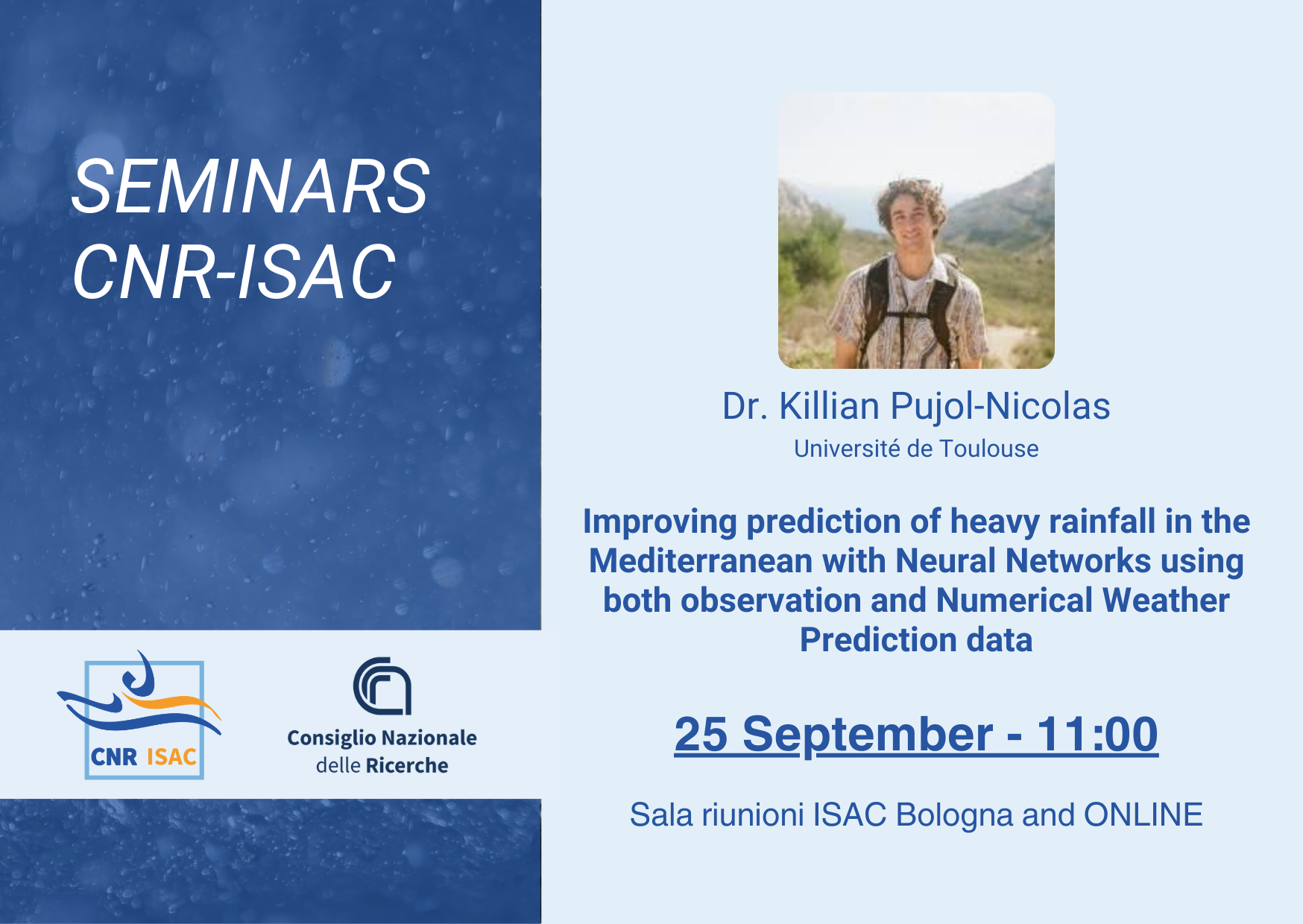Forecasting Heavy Precipitation Events (HPE) in the Mediterranean is crucial but challenging due to the complexity of the processes involved. In this context, Artificial Intelligence methods have recently proven to be competitive with state-of-the-art Numerical Weather Prediction (NWP). Our work focuses on improving the prediction of the occurrence of HPE over periods from 1 h to 24 h based on Neural Network (NN) models. It uses both ground-station observations (OBS) and data from Meteo France’s Arome and Arpege NWP models, on two regions with oceanic and Mediterranean climates, respectively, for the period 2016-2018. Our verification metric is the Peirce Skill Score (PSS).
Our results show that the NN model using only OBS or NWP data performs better for shorter and longer rainfall accumulation period, respectively. In contrast, a hybrid method combining both OBS and NWP data offers the best performance and remains stable with the rainfall accumulation period. The hybrid method also improves the performance in predicting increasingly intense rainfall, from the 5 % to the 0.1 % rarest events. We also find that the choice of a balanced loss function---i.e. one that takes into account the under-representation of rare events---is crucial for not missing actual events and significantly improves performance. Therefore, we propose a balanced loss function based on the PSS that improves greatly the prediction of HPE. Finally, the hybrid method is particularly well suited for the prediction of HPE in the Mediterranean climate, especially during the fall season, period during which most HPE occur.

